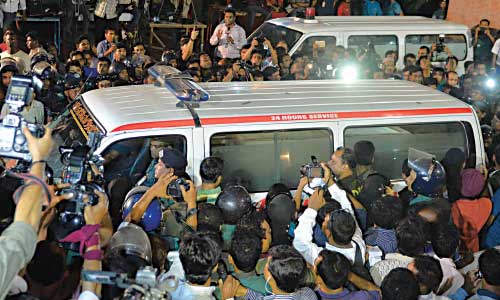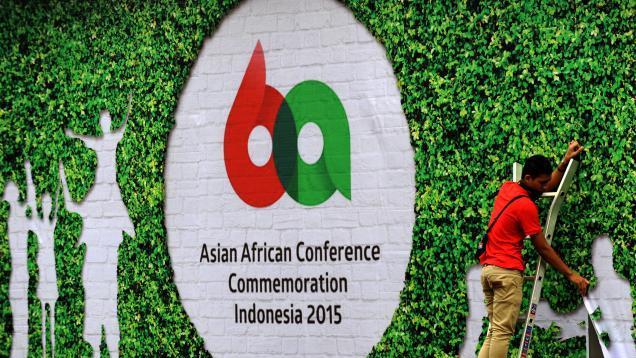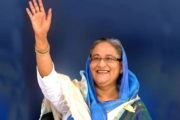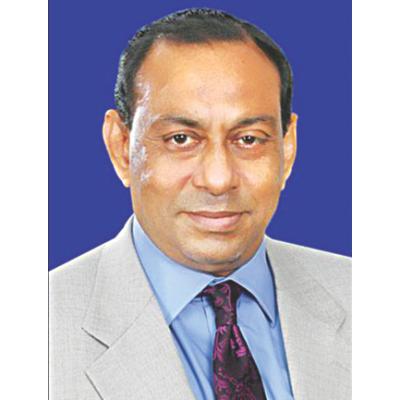e-News® | The NEWS Company…Singapore, April 12, 2015 : An Islamist politician convicted of war crimes during Bangladesh’s 1971 war of independence from Pakistan has been hanged at a prison in Dhaka. Mohammad Kamaruzzaman of the Jamaat-e-Islami party was found guilty of genocide by a domestic war crimes tribunal in May 2013. Kamaruzzaman, 62, was convicted of crimes including the killing of at least 120 unarmed farmers. He had refused to seek clemency from Bangladesh’s president. Kamaruzzaman was the third most senior figure in Jamaat-e-Islami, an Islamist opposition party.
He is the second war crimes suspect in Bangladesh to be executed. In December 2013 Abdul Kader Mullah, assistant secretary general of Jamaat-e-Islami since 2010 and a former editor of an Islamist newspaper, was hanged after being found guilty on five of six counts of crimes against humanity and war crimes.
Of the others who have been convicted:
Former Jamaat-e-Islami leader Ghulam Azam died in custody in 2014
Former Bangladesh Nationalist Party MP and Jamaat-e-Islami leader Motiur Rahman Nizami is awaiting the death sentence after being convicted in October 2014
Former Jamaat-e-Islami MP Delwar Hossain Sayeedi has been sentenced to life in jail
Jamaat-e-Islami Secretary-General Ali Ahsan Mohammad Mujahid was condemned to death in July 2013
Former Bangladesh Nationalist Party minister, Salahuddin Quader Chowdhury was sentenced to death in October 2013
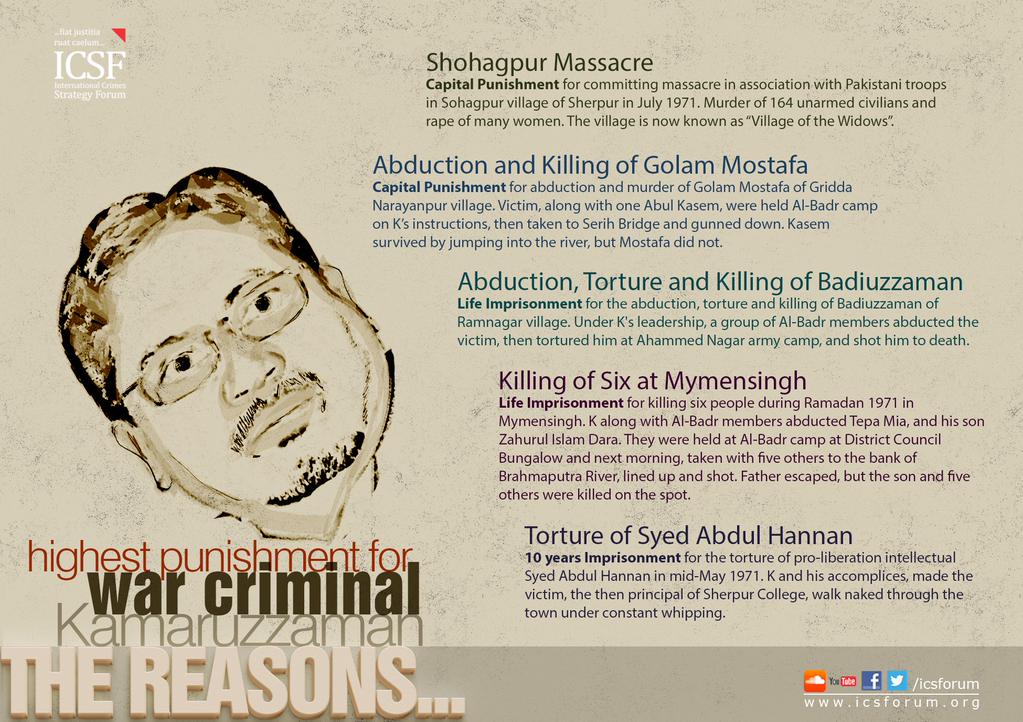 Twenty-one members of the condemned man’s family, including his wife and son, visited him in prison on Saturday afternoon. There was tight security outside the jail ahead of the condemned man’s execution, with large demonstrations and counter-demonstrations expected in support of and against the hanging. Kamaruzzaman was the assistant secretary-general of the Islamist Jamaat-e-Islami party. He was found guilty in May 2013 of masterminding what the prosecution described as one of the bloodiest single episodes in the independence war. The war crimes tribunal heard that he played a prominent role alongside Pakistani troops in the “slaughter” of at least 120 unarmed farmers in the remote northern village of Sohagpur which subsequently became known as the “village of widows”.
Twenty-one members of the condemned man’s family, including his wife and son, visited him in prison on Saturday afternoon. There was tight security outside the jail ahead of the condemned man’s execution, with large demonstrations and counter-demonstrations expected in support of and against the hanging. Kamaruzzaman was the assistant secretary-general of the Islamist Jamaat-e-Islami party. He was found guilty in May 2013 of masterminding what the prosecution described as one of the bloodiest single episodes in the independence war. The war crimes tribunal heard that he played a prominent role alongside Pakistani troops in the “slaughter” of at least 120 unarmed farmers in the remote northern village of Sohagpur which subsequently became known as the “village of widows”.
Three women widowed as a result of the killings testified against Kamaruzzaman during his trial. They described how he led Pakistani troops to the village and helped the soldiers line up and execute the farmers. Kamaruzzaman was found guilty on five out of seven charges of crimes against humanity, including the murder and torture of unarmed civilians. His lawyers insisted that he had not received a fair trial.
‘Village of Widows’
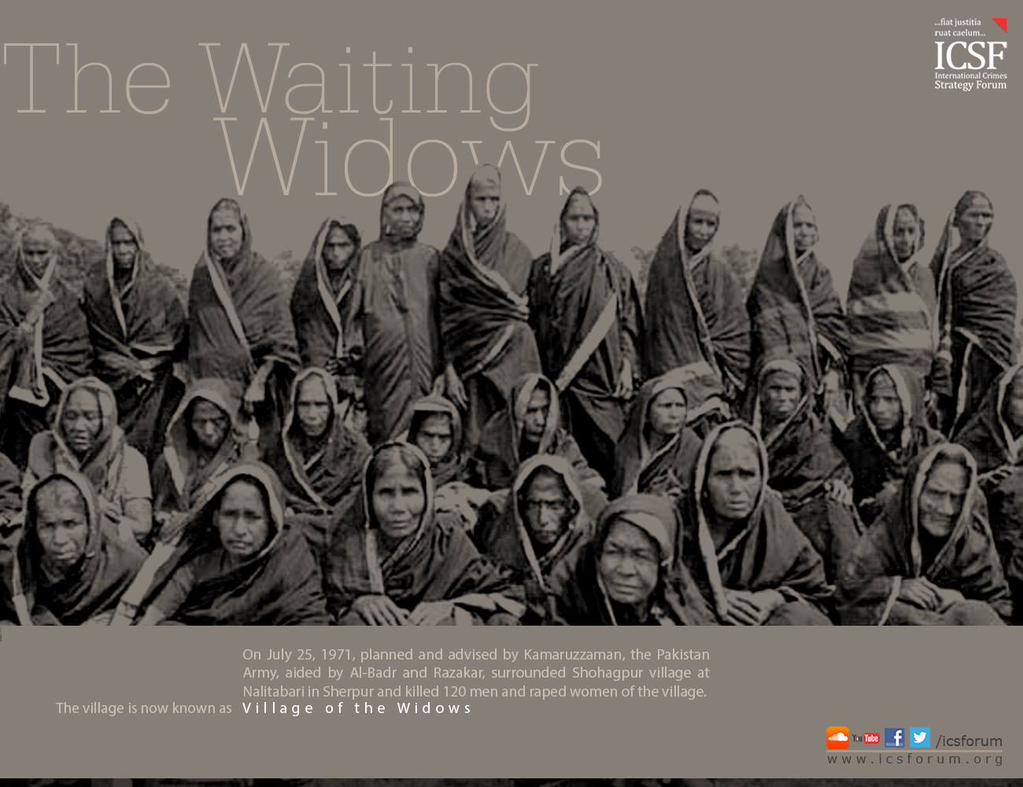 The remote hamlet has since become known as the “Village of Widows”. The 1971 conflict, one of the bloodiest in world history, led to the creation of independent Bangladesh from what was then East Pakistan. Three women who lost their husbands testified against him in one of the most emotive of all the war crimes trials.
The remote hamlet has since become known as the “Village of Widows”. The 1971 conflict, one of the bloodiest in world history, led to the creation of independent Bangladesh from what was then East Pakistan. Three women who lost their husbands testified against him in one of the most emotive of all the war crimes trials.
“All 32 widows who are still alive are happy the notorious killer has been hanged. Finally we got justice,” said Mohammad Jalal Uddin, a Sohagpur farmer who lost seven members of his extended family in the killing.
Analysts said the execution could deepen the country’s political crisis after the main opposition leader, Khaleda Zia, launched a nationwide protests in January to try to topple Prime Minister Sheikh Hasina’s secular government.
Jamaat leader Ghulam Azam, arguably the most notorious Bangladeshi war criminal, was sentenced to 90 years imprisonment at the age of 90. He died in incarceration at Bangabandhu Sheikh Mujib Medical University, where he was undergoing treatment, on October 23, 2014. Jamaat, the nation’s largest Islamist party, is an ally of the Zia’s Bangladesh Nationalist Party (BNP).
Bangladesh went ahead with the latest hanging despite last-minute pleas from the United Nations, the European Union and human rights organisations to halt the execution. The UN said the trial did not meet “fair international” standards.
Bangladesh independence war, 1971
Civil war erupts in Pakistan, pitting the West Pakistan army against East Pakistanis demanding autonomy and later independence Fighting forces an estimated 10 million East Pakistani civilians to flee to India In December, India invades East Pakistan in support of the East Pakistani people Pakistani army surrenders at Dhaka and its army of more than 90,000 become Indian prisoners of war East Pakistan becomes the independent country of Bangladesh on 16 December 1971 Exact number of people killed is unclear – Bangladesh says it is three million but independent researchers say there were up to 500,000 fatalities







